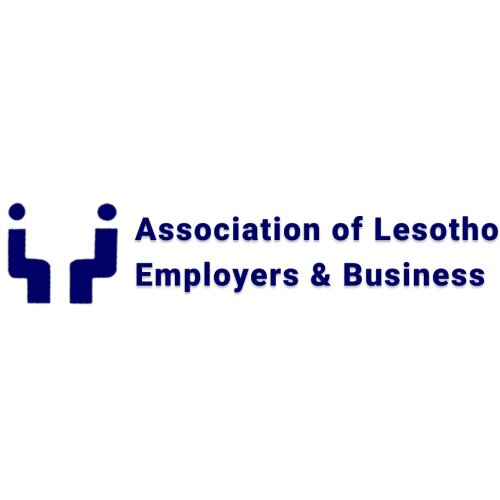Best Public-Private Partnerships (PPP) Lawyers in Maseru
Share your needs with us, get contacted by law firms.
Free. Takes 2 min.
List of the best lawyers in Maseru, Lesotho
About Public-Private Partnerships (PPP) Law in Maseru, Lesotho
Public-Private Partnerships (PPP) in Maseru, Lesotho are collaborative agreements between government entities and private sector businesses designed to finance, construct, and manage projects that serve the public interest. These projects typically include infrastructure developments such as roads, hospitals, water supply systems, energy projects, and schools. Through PPPs, the government leverages private sector expertise, innovation, and capital to deliver essential services more efficiently and cost-effectively. The legal framework governing PPPs helps set out the rules for partnership formation, risk allocation, dispute resolution, regulatory compliance, and project implementation specific to Lesotho’s unique context.
Why You May Need a Lawyer
Engaging in a PPP in Maseru can involve complex legal, financial, and regulatory arrangements. Whether you are a government official, a private investor, or any stakeholder interested in PPPs, a lawyer can help you in various situations, including:
- Drafting, negotiating, or reviewing PPP contracts and agreements
- Guiding the bidding or procurement process
- Ensuring compliance with Lesotho’s regulatory requirements
- Resolving disputes between public and private partners
- Structuring project financing and risk management mechanisms
- Advising on land acquisition, environmental assessments, and social impact issues
- Securing permits and licenses required for project execution
- Protecting intellectual property rights and confidential information
Having a lawyer ensures you fully understand your rights and obligations, minimize risks, and promote the successful delivery of your PPP project.
Local Laws Overview
The legal environment for Public-Private Partnerships in Maseru is shaped by various statutes, regulations, and government policies. The cornerstone is the Public-Private Partnership Act of 2021, which provides a comprehensive framework for the development and regulation of PPPs in Lesotho. Key aspects of local PPP laws include:
- Clear definition of what constitutes a PPP in the Lesotho context
- Detailed procedures for the initiation, approval, and implementation of PPP projects
- Eligibility requirements for private sector participation
- Guiding principles on the allocation of risks and rewards between public and private partners
- Transparent procurement processes to ensure fairness and value for money
- Regulations regarding project financing, such as government guarantees and subsidies
- Requirements for community engagement and environmental sustainability
- Dispute resolution mechanisms, often promoting negotiation or arbitration instead of litigation
It is important to note that PPP projects in certain sectors, such as utilities or transport, may also be subject to sector-specific laws or oversight from regulatory bodies within Lesotho.
Frequently Asked Questions
What is a Public-Private Partnership (PPP) in Lesotho?
A PPP in Lesotho is a formal arrangement where a government entity collaborates with a private company to finance, construct, operate, or maintain a project or service that benefits the public. This partnership type is established under the protections and guidelines of the country’s PPP Act and related laws.
Who can participate in a PPP in Maseru?
Both local and international private sector entities, such as companies or consortia, can participate in PPPs. Eligibility requirements include financial capacity, technical experience, and compliance with specific application criteria set by the government.
What types of projects can be developed through PPPs in Lesotho?
Common PPP projects in Lesotho include infrastructure (roads, bridges, hospitals), utilities (water, electricity), and services (waste management, information technology systems).
How are PPP projects selected in Maseru?
Government ministries or agencies identify public needs and prioritize projects. Proposals may come from public authorities or through unsolicited offers from the private sector, but all must follow transparent procurement and approval procedures.
What is the role of government in a PPP?
The government typically provides land, regulatory approvals, and oversight. It may also offer financial incentives or guarantees. The government’s role is to ensure that projects meet public needs and offer value for money.
How are risks shared in a PPP contract?
PPP agreements outline how risks such as construction delays, cost overruns, regulatory changes, and demand shortfalls are distributed between partners. Risk allocation is designed to place risks with the party best able to manage them.
How are disputes resolved in PPPs?
Most PPP contracts in Lesotho include clauses that prioritize negotiation, mediation, or arbitration to resolve disputes, rather than immediate court proceedings. This approach helps avoid lengthy and costly litigation.
What regulatory bodies oversee PPPs in Lesotho?
The Lesotho PPP Unit, under the Ministry of Finance, is the primary institution overseeing PPPs, along with sector-specific regulators where applicable (such as energy or transport).
What legal documents are required for a PPP?
Key documents include the PPP contract, project development agreement, financing agreements, government guarantees, and approvals or licenses from relevant regulatory authorities.
What are the key challenges in implementing PPPs in Maseru?
Common challenges include complex regulatory requirements, funding constraints, land acquisition issues, community opposition, and managing long-term contractual relationships. Legal advice can help mitigate these challenges.
Additional Resources
If you need more information or support on Public-Private Partnerships in Maseru, you may contact or consult the following:
- Lesotho PPP Unit under the Ministry of Finance
- Lesotho Ministry of Development Planning
- Lesotho Chamber of Commerce and Industry
- Lesotho Law Society for referrals to qualified lawyers
- Local offices of international development organizations involved in PPP advisory
- Relevant sector regulatory authorities, such as the Lesotho Electricity and Water Authority
Next Steps
If you are considering initiating or participating in a PPP in Maseru, Lesotho, it is important to take the following steps:
- Identify your project idea or opportunity and assess whether it fits within the PPP framework
- Gather all relevant documentation and conduct a preliminary feasibility assessment
- Reach out to the Lesotho PPP Unit or relevant sector regulators for guidance on procedures and requirements
- Consult a lawyer with experience in PPP law in Lesotho to evaluate your legal risks and responsibilities
- Prepare for stakeholder engagement, including community consultations and environmental impact assessments if required
- Work with your lawyer to draft or review contractual agreements and ensure compliance with all regulatory obligations
Seeking advice early in the process helps safeguard your interests and paves the way for the successful and sustainable development of your PPP project in Maseru.
Lawzana helps you find the best lawyers and law firms in Maseru through a curated and pre-screened list of qualified legal professionals. Our platform offers rankings and detailed profiles of attorneys and law firms, allowing you to compare based on practice areas, including Public-Private Partnerships (PPP), experience, and client feedback.
Each profile includes a description of the firm's areas of practice, client reviews, team members and partners, year of establishment, spoken languages, office locations, contact information, social media presence, and any published articles or resources. Most firms on our platform speak English and are experienced in both local and international legal matters.
Get a quote from top-rated law firms in Maseru, Lesotho — quickly, securely, and without unnecessary hassle.
Disclaimer:
The information provided on this page is for general informational purposes only and does not constitute legal advice. While we strive to ensure the accuracy and relevance of the content, legal information may change over time, and interpretations of the law can vary. You should always consult with a qualified legal professional for advice specific to your situation.
We disclaim all liability for actions taken or not taken based on the content of this page. If you believe any information is incorrect or outdated, please contact us, and we will review and update it where appropriate.












